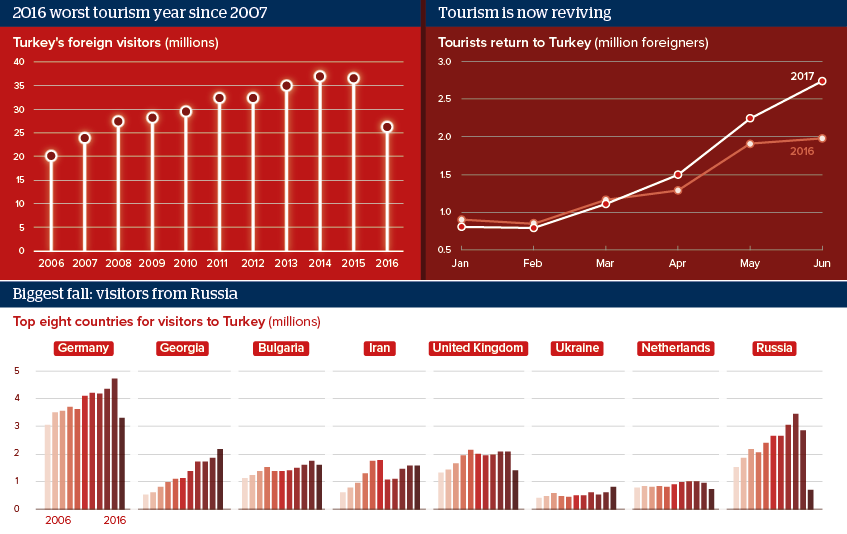Russians return to Turkish beaches, Germans stay away
Turkey’s often spiky relations with other countries can affect its income from foreign tourism
Source: Turkish Statistical Institute (TurkStat)
Outlook
After years of steady increase, foreign tourist numbers stagnated in 2015 and fell in 2016. There were fewer Russians, usually the second-largest contingent after the Germans: 18% down year-on-year in 2015, and a huge 76% down in 2016, the year of the coup attempt. In 2015, Russia’s economic crisis was probably to blame, in 2016, the political freeze after Turkey downed a Russian warplane over its Syrian border in late 2015. Anecdotal evidence this year suggests 2015 levels are returning overall.
However, there were also large year-on-year drops in Western European visitors in 2016: Germany (30%, the market leader), United Kingdom (32%) and Netherlands (24%). Turkey’s estrangement from the West and reputation for insecurity are responsible. Such factors are not deterring Turkey’s neighbours or Turks resident abroad returning on holiday.
Impacts
- Income from foreign visitors soared from 7.4 billion dollars in 2001 to 27.8 billion in 2014, but sank in 2016 to 16.0 billion.
- A revival in tourism would boost investment and employment and help offset the perennial foreign trade gap that is due to energy imports.
- West European tourists are important for Turkey as they tend to spend more than others.
- A more overly Islamic Turkey, with restrictions on alcohol and stricter dress codes, would give Westerners cause to prefer elsewhere.
